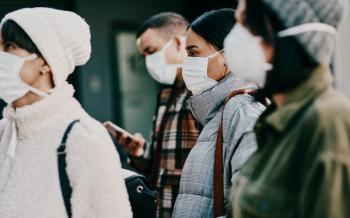
Congress must pass additional funding to fight COVID-19, ACP says
Physicians’ group cites CDC data in letter to lawmakers.
Congress must pass legislation with additional money to fight the COVID-19 pandemic, or jeopardize needed measures in the public health emergency, according to the American College of Physicians (ACP).
College President George M. Abraham, MD, MACP, wrote to congressional leaders calling for more funding in the
“Sustained and adequate funding is essential for the federal government and public health agencies to support the country’s ongoing
Abraham cited the recent uptick of the COVID virus detected in wastewater around the United States.
The federal
The agency also
In Congress, the bill contains $10.6 billion for the Public Health and Social Services Emergency Fund, including $9.85 billion for the Biomedical Advanced Research and Development Authority and $750 million to develop new vaccines that protect against future variants.
“The COVID Supplemental Appropriations Act 2022, and its accompanying funding are necessary to maintain the federal government’s ongoing response to the COVID pandemic,” Abraham said. “Without additional funding, patients will not have access to the
Newsletter
Like what you’re reading? Subscribe to Dermatology Times for weekly updates on therapies, innovations, and real-world practice tips.











